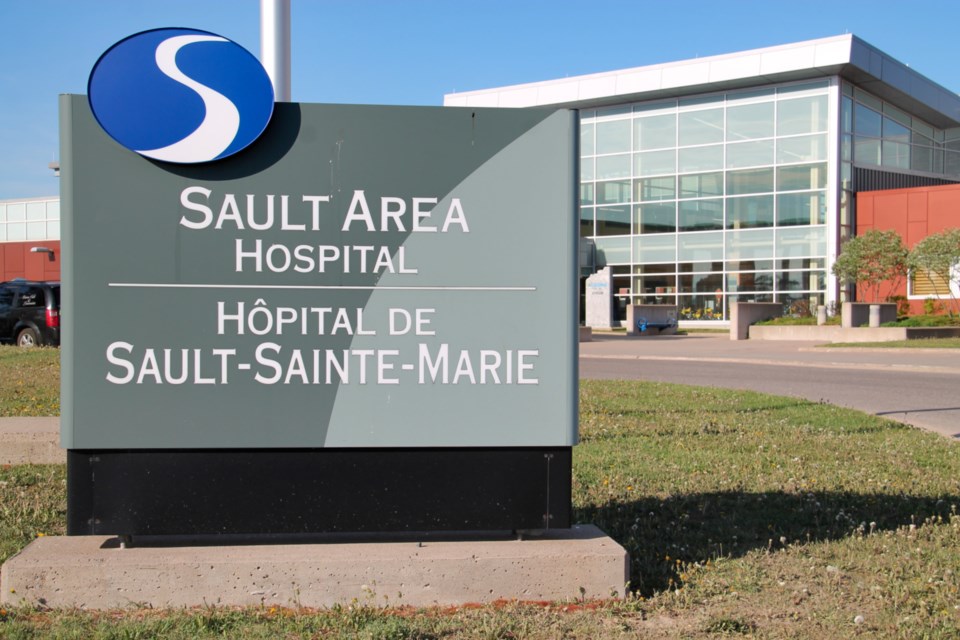There is hope a successful day treatment pilot project for people living with addiction can be restarted at Sault Area Hospital, but so far the annual funding needed to run it is nowhere to be found.
From November 2020 to August 2022, the Concurrent Disorders Intensive Day Treatment program treated more than 110 individuals — and of its graduates, nearly 40 per cent found employment or returned to work, said Rose Calibani, communications and public affairs officer for SAH.
“While SAH was not mandated to provide this programming, the COVID-19 pandemic confirmed the need to provide this intensive care close to home,” said Calibani.
The program was designed so patients could avoid extended periods of time away from home or work by providing a structured, scheduled program of treatment activities five days or evenings per week at home or in another setting.
Twenty per cent of clients who attended the program were involved with Child Protection and able to keep their children in their care while in the program, said Calibani.
“This pilot programming filled significant services gaps by providing the right level of care close to home,” said Calibani.
The pause in funding comes just as Ontario's Chief Coroner has released new statistics revealing 111 people died by drug poisoning in the first two years of the pandemic in Sault Ste. Marie and Algoma, with that number growing from 52 in the first year to 59 in the second. The same statistics show that during that second year, the Algoma Public Health (APH) unit had the third-highest death rate in Ontario when it came to opioid-related overdoses, behind only Thunder Bay and Sudbury.
Later this afternoon, hundreds of people are expected to gather at the Memorial Wall in front of the Civic Centre to mark International Overdose Awareness Day.
Some local leaders have questioned the decision to not renew the pilot treatment project, especially considering similar programs in other communities did receive an extension of funding.
In a recent SooToday article, Sault Ste. Marie and Area Drug Strategy coordinator Cami Coutu commented on the pausing of the program due to lack of funding.
“Losing that funding was heartbreaking in the sense that so many people came out of that program in a positive way. I have hired some and they spoke so highly of that program," said Coutu. "Day treatment programs work in other cities, and it was proven to work here, too. Unfortunately it was a pilot project and there is no funding for it."
In July, Mayor Christian Provenzano penned a letter to Ontario Health pleading for provincial funding for the program.
"The program provided badly needed specialized mental health and addictions care for those with complex addictions and mental health needs," Provenzano wrote in his letter. "We need to offer more services – not less – and I urge Ontario Health to provide Sault Area Hospital with the annual funding it needs to restore the program."
A total of $300,000 in funding is needed to offer the programming for the remainder of the fiscal year, with an estimated $750,000 needed annually to sustain programming. SAH has applied to both Health Canada and Ontario Health, so far without success.
“Should funding become available SAH is prepared to restart the programming immediately,” said Calibani.
Reached by email on Tuesday, Sault MPP Ross Romano said providing treatment and supports for those in our community struggling with mental health and addictions remains a top priority.
“While Sault Area Hospital may no longer be operating the Concurrent Disorders Intensive Day Treatment pilot program, it is important to note that there has been absolutely no loss of provincial funding in Sault Ste. Marie or Algoma. In fact, funding has only continued to increase on a yearly basis,” said Romano, citing the $20 million capital funding and $343,000 in annual operational funding for the Residential Withdrawal Management Treatment facility now under construction.
”I have spoken with the great team at SAH and it is my understanding they have been working with colleagues in other northern communities like Sudbury and Timmins to attempt to secure further funding from both the federal and provincial governments to help provide this type of program again in the future,” said Romano. “As always, I will do everything in my power to help our community receive the help we need.”
